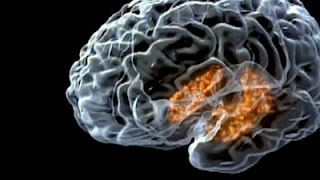Unit 1 Chapter 7 Memory
Key ideas from Memory Unit:
Encoding, episodic vs. semantic and procedural memory, explicit vs. implicit memory, maintenance and rehearsal strategies to improve memory, various models of how memory works such as PDP and Info Processing, understand the difference between sensory, short term, and long term memory, compare recency and primacy effects, understand what affects memory retrieval, understand the limits of eye-witness testimony, Herman Ebbinghauss , compare retroactive and proactive interference, compare retrograde and anterograde amnesia,
*****Use mnemonics and distributed practice to learn all this stuff and know why you are remembering and forgetting.
Good overview of basic memory concepts.
A whole site dedicated to human memory... very helpful. It has this very complete concept map.
http://www.human-memory.net/types.html
Crash Course Psychology with our friend Hank!
How we make memories... https://youtu.be/bSycdIx-C48
How we make memories... https://youtu.be/bSycdIx-C48
Remembering and Forgetting
Some fun memory games you can do online
Elizabeth Loftus's Ted Talk - The Fiction of Memory... the rape conviction of an innocent man...
NOVA: How Memory Works
Article - What Science Says about Ferguson: Hacked memory. We may all be working from different sets of "facts" about the same event.
http://www.forbes.com/sites/fayeflam/2014/12/01/what-science-says-about-the-ferguson-case-memory-can-be-hacked/
This is not specifically about memory, but about implicit associations we make about people.
https://implicit.harvard.edu/implicit/demo/ You can take some of the Implicit Association Tests to see what some of your implicit associations about people and groups are. I’m putting it with this unit as an example of implicit vs. explicit thought processes.
Story from National Public Radio (NPR) about H.M., the man who had the bilateral removal of his hippocampus (What is the plural of hippocampus?) and ended up with the nearly complete inability to form new memories. Find out why he had his hippocampus removed and learn about this amazing case study of anterograde amnesia.
http://www.npr.org/templates/story/story.php?storyId=7584970
And an article from Psychology Today about H.M.
This video clip was made based on 2000 slices that were made of H.M.'s brain after he died in 2008.
And an article from Psychology Today about H.M.
This video clip was made based on 2000 slices that were made of H.M.'s brain after he died in 2008.
The movie Memento was the first feature film by star director Christopher Nolan who went on to direct The Dark Night and Inception. It is a fictional film about a character who, like H.M., loses the ability to create any new memories, but still tries to solve a horrible crime.
It is rated R due to some very violent content and adult language. If that sort of film is acceptable to you and your parents, you can stream it on Netflix or rent it. It's definitely not appropriate for younger siblings.




